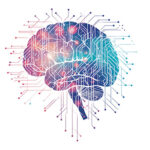AI has untapped potential in classrooms, from preschool through higher education. Digital assistants can transform how educators teach, giving them the freedom to teach from anywhere in the room.
When digital assistants are used in classrooms, the outcomes can be overwhelmingly beneficial.
Join eSchool News as a panel of experts shares the benefits of using AI digital assistants.
You’ll learn:
- What an AI digital assistant is
- How “technostress” is defined and how it can be reduced for teachers
- How teachers can efficiently control the apps and tools they are already using in classrooms
- How to bring simplicity into the classroom with artificial intelligence
- How edtech tools are working together to increase classroom productivity and support innovative teaching
Related:
AI in the Classroom – Supporting Innovative Teaching and Increased Productivity
- Friday 5: Virtual field trips - April 26, 2024
- Google, MIT RAISE launch no-cost AI training course for teachers - April 26, 2024
- 4 ways to support work-based learning - April 23, 2024
More from eSchool News
Friday 5: Virtual field trips
While virtual field trips are not a new phenomenon, they gained popularity shortly before COVID due in part to their ability to expose students to places and experiences they may not otherwise access.
Google, MIT RAISE launch no-cost AI training course for teachers
Google and MIT RAISE have announced a no-cost Generative AI for Educators Course designed to help teachers use generative AI tools to personalize instruction.
4 ways to encourage play in education
As a longtime educator, I’ve witnessed firsthand the incredible benefits that play can have in a K–8 classroom. Unstructured play is how students learn to interact with the world around them.
CoSN IT Leader Spotlight: Lisa Higgins
In partnership with CoSN, eSchool News is highlighting the innovative and dedicated work of IT leaders in school districts across the country.
It’s time to pay student teachers
I fell in love with teaching while working as an assistant educator at a preschool 16 years ago. I had not studied education, so I enrolled in an alternative certification program.
The evolving requirements of a K-12 school network
As the school year began this year, the White House announced several initiatives to curb cyberattacks on K-12 schools. This was in response to a 2022-2023 school year that saw eight major cyberattacks.
A bungled FAFSA rollout threatens students’ college ambitions
Christian Rojas Linares can’t finish his financial aid forms because he’s been blanketed with error messages. The New York City high school senior has even received incorrect emails telling him his application was canceled.
4 ways to support work-based learning
As work-based learning models grow in popularity, a new report from the Center for American Progress (CAP) highlights key themes in recently-passed state legislation that will support efforts to expand or improve such models.
Prioritizing inclusivity in game-based learning
Applying the principles and practices of inclusive design in game-based learning can expand access to rich learning experiences to a neurodiverse group of learners, according to a new whitepaper from Kahoot!.
Using universal screening to improve student well-being
The pandemic shined a light on the mental health crisis facing our students–but student well-being is not a new phenomenon.










